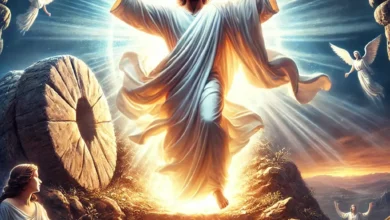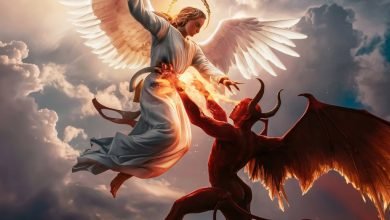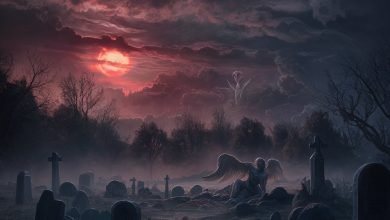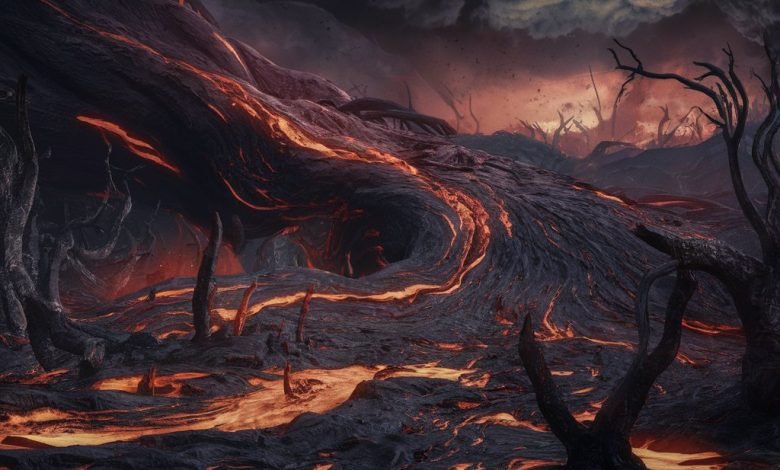
What does the second death mean in the Bible?
What does the second death mean in the Bible? : The second death is not a topic you’re likely to hear in a sermon anytime soon. However, it is an important part of the teachings in the Book of Revelation about what happens to us in the end.
The second death, also known as eternal death, is an apocalyptic concept presented in the Book of Revelation and is described as “the lake of fire and sulfur, which is the second death” (Revelation 21:8).
Death is a reality of life on this side of Christ’s return, but one day there will be no more death. Those redeemed by Christ’s death on the cross will pass through death once to live forever. Those who are not redeemed will also face the second death.
Read More: What does the seven stars in Revelation symbolize?
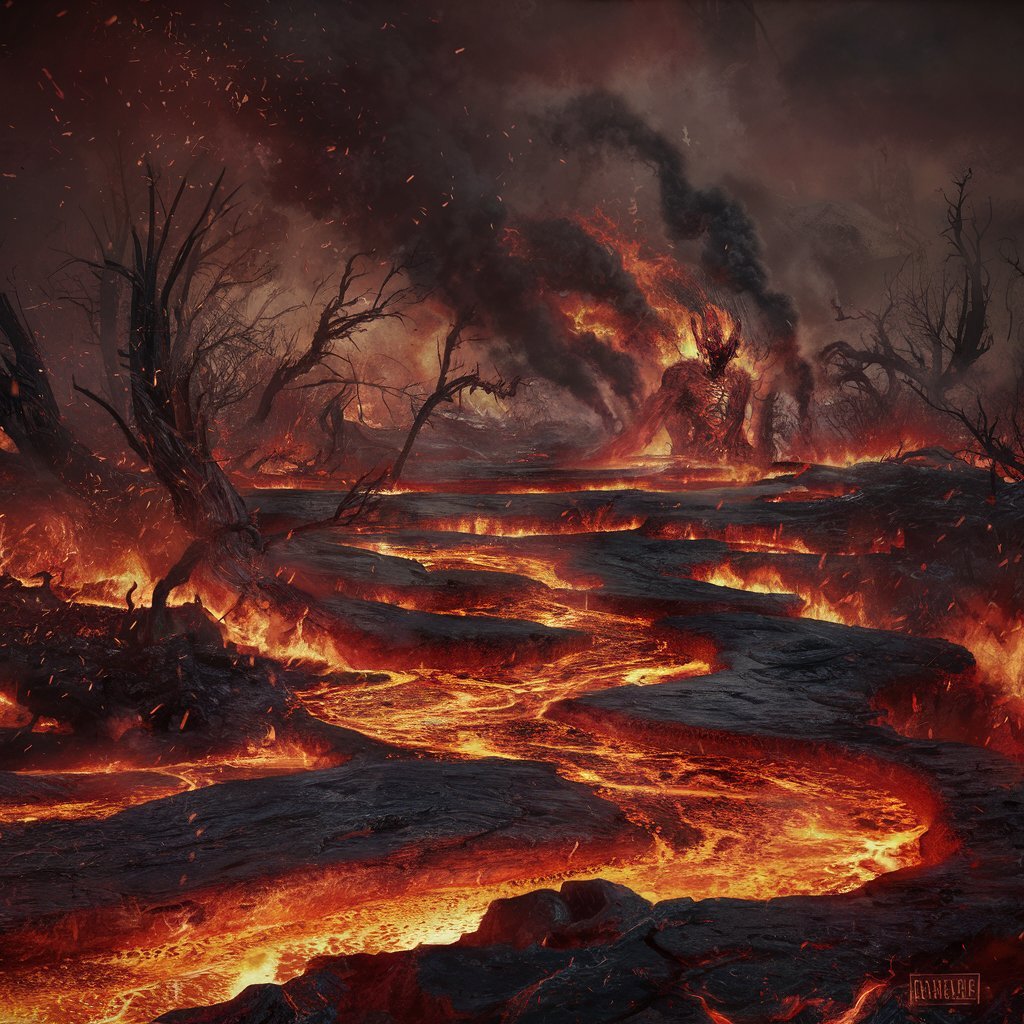
فرست محتوا
Verses on the Second Death in the Book of Revelation
Jesus Christ, when appearing to John in Revelation, refers to the second death. The first ominous reference to it is found in Revelation 2:11: “Whoever has ears, let them hear what the Spirit says to the churches. The one who is victorious will not be hurt at all by the second death.” This message of Jesus is to the church in Smyrna. He assures them that although they suffer, they should not be afraid. If they remain faithful unto death, they will receive “the crown of life.” He ends with the assurance that the second death will not harm them. All believers can apply this assurance to their own lives.
Revelation 20:6 also celebrates those who share in Christ’s resurrection and assures them, “Blessed and holy are those who share in the first resurrection. The second death has no power over them, but they will be priests of God and of Christ and will reign with him for a thousand years.”
When we accept Christ’s death on the cross as atonement for our sins, we die with him but also rise with him, just as he rose on the third day. In this way, we “share in the first resurrection.” Like Jesus, we will enjoy eternal life.
Revelation 20:11-15 describes the “great white throne judgment.” This is where the dead face judgment. Verses 14 and 15 refer to the second death: “Then death and Hades were thrown into the lake of fire. The lake of fire is the second death. Anyone whose name was not found written in the book of life was thrown into the lake of fire.”
So, we see that the second death, this lake of fire, is the destination for death, Hades, and all those whose names are not found in the book of life.
Ultimately, Revelation 21:8 identifies those for whom the second death is destined. “But the cowardly, the unbelieving, the vile, the murderers, the sexually immoral, those who practice magic arts, the idolaters, and all liars—they will be consigned to the fiery lake of burning sulfur. This is the second death.”
We can attribute this passage to those who did not repent of these sins before their physical death, those who rejected the redemption offered by Jesus Christ to all sinners.
We know that Paul wrote this warning to the Corinthians:
“Or do you not know that wrongdoers will not inherit the kingdom of God? Do not be deceived: Neither the sexually immoral nor idolaters nor adulterers nor men who have sex with men nor thieves nor the greedy nor drunkards nor slanderers nor swindlers will inherit the kingdom of God. And that is what some of you were. But you were washed, you were sanctified, you were justified in the name of the Lord Jesus Christ and by the Spirit of our God” (1 Corinthians 6:11-15).
Therefore, Revelation 21:8 refers to those who refused to accept forgiveness for these sins and ask for free forgiveness through the death and resurrection of Jesus Christ. This is more incentive to choose Jesus now and pray that others do as well. He welcomes all repentant sinners and offers them grace and eternal life for free.
Many Christians are unfamiliar with the term “second death” because they shy away from the Book of Revelation. Perhaps this is why Jesus blesses those who “hear and take to heart” the words of this book in Revelation 1:3 and issues a stern warning not to add or subtract from it in Revelation 22:18-19.
The Second Death Has No Power(second death in the Bible)
The phrase “the second death has no power” refers to the promise that those who are part of the first resurrection or have remained faithful to God and accepted salvation through Jesus Christ will not be harmed by this second death. This is mentioned in Revelation 20:6.
“Blessed and holy are those who share in the first resurrection. The second death has no power over them, but they will be priests of God and of Christ and will reign with him for a thousand years.”
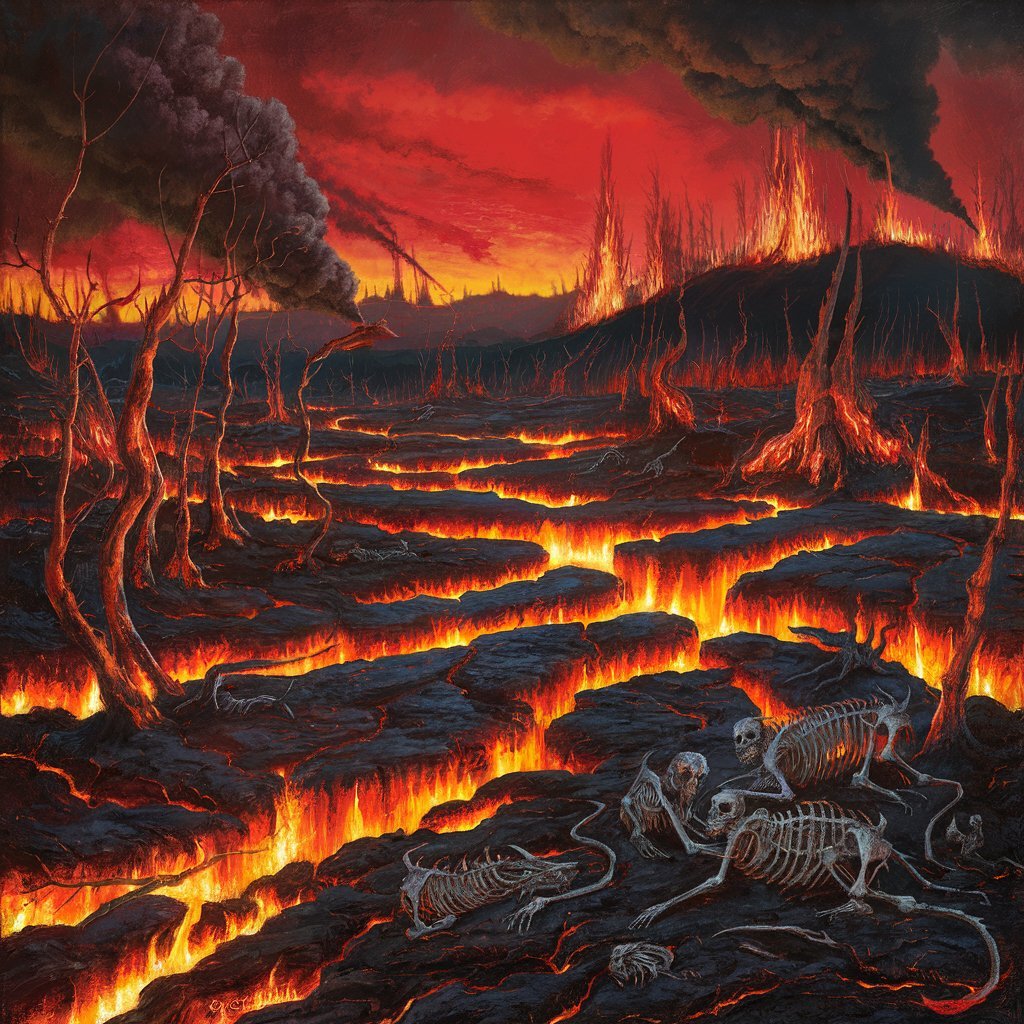
First Death vs. Second Death
Hebrews 9:27-28 tells us that we are appointed to die once. After that death, judgment comes. This passage also says that Jesus will appear a second time to save those who are “eagerly waiting for him.” We are appointed to die a physical death only once. But what happens to those who do not follow Jesus, those who experience this second death?
There are many theories about what happens after physical death. Even those who study God’s Word have different theories about this second death.
One theory is that this second death in the lake of fire is complete annihilation. While followers of Jesus continue to experience eternal life, those whose names are not written in the book of life will cease to exist. Proponents of this theory might point to Jesus’ words in Matthew 10:28.
Others believe that the second death is not the end of the soul’s existence but rather eternal separation from God. Since God is love, life, truth, holiness, justice, and beauty, this would mean eternal separation from everything good and right. This theory likely stems from several instances where Jesus refers to eternal fires, outer darkness, and torment (such as in Matthew 25:30, Matthew 25:41, Matthew 25:46, and Mark 9:48) and Paul’s words in 2 Thessalonians 1:9.
In his blog “Redeeming God,” Jeremy Myers describes eternal separation from God as:
“This involves God allowing people to live completely separated from Him. It allows people to live as slaves to hatred, violence, jealousy, immorality, deceit, greed, lust, and every other bad thing. For this reason, the second death is the opposite of eternal life. Eternal life is living the way God always wanted, planned, and desired; eternal death (or the second death) is living the exact opposite, separate from everything God intended for humanity” (emphasis from the original author).
We don’t know what the experience of the second death will be like. Considering the balance of biblical teachings on other subjects, it’s probably not wise to dwell on it unhealthily. It’s enough to know that living apart from God is nothing to be desired and is equivalent to the death of the spirit, the essence of our being.
Who Will Experience the Second Death?
The redeemed, those who choose to receive forgiveness in Jesus Christ, have no fear of his return, physical death, or the second death. We are promised eternal life. God keeps his promises.
This does not mean that we have not sinned or lived blameless lives. No one is sufficient to enter God’s kingdom on their own, except Jesus. Salvation is found in no other name but Jesus.
However, living without accepting Christ, without confessing our sinfulness and need for redemption, and without accepting Jesus’ death as atonement for our sins, exposes us to both the first and second death.
This is hard, especially knowing that many people do good deeds and lead fulfilling lives on earth but do not accept Jesus Christ as their savior. We are all sinners; even the smallest sin separates us from God. This is why Jesus had to be born as a baby, live a sinless life, and suffer for us.
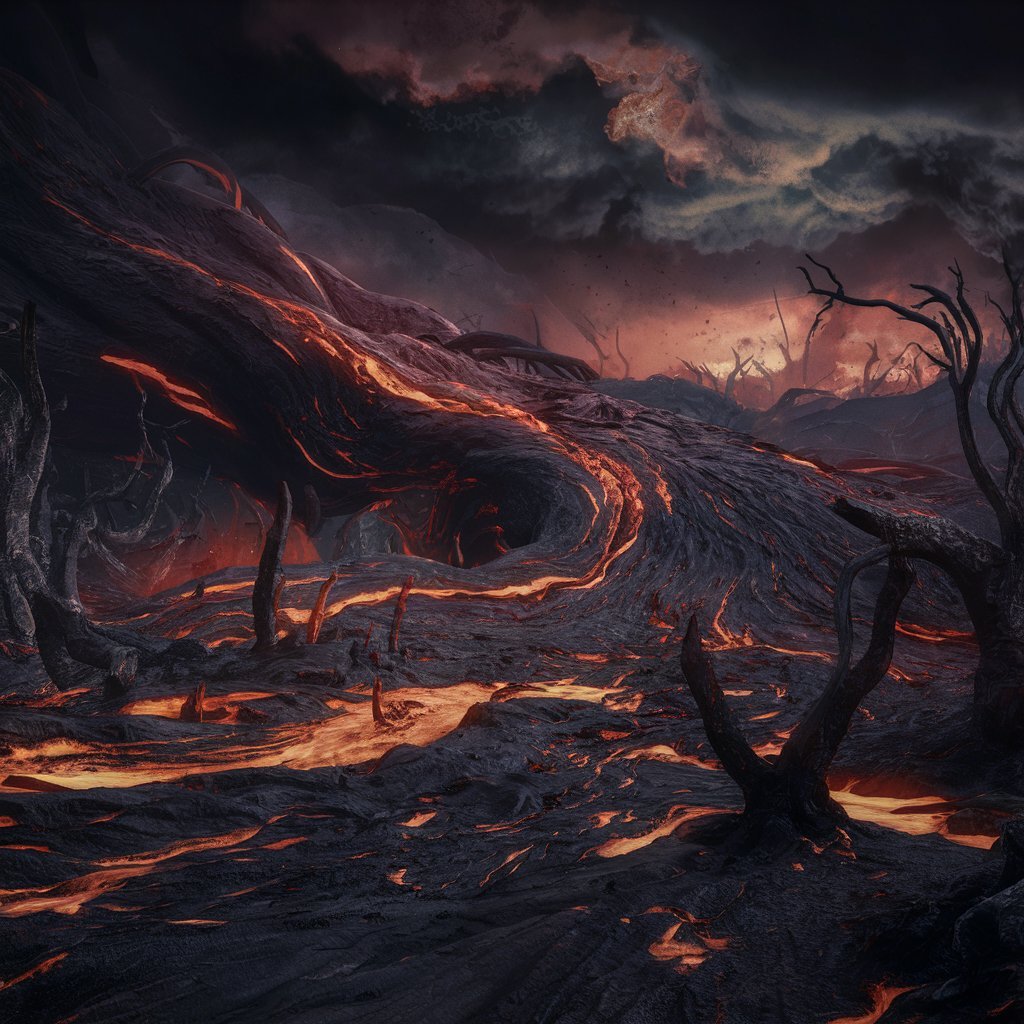
What Can We Learn from the Second Death?
First, our lives are about representing the truth of Jesus Christ because the end will come. Without letting our thoughts dwell on the second death, we can let the certainty of it motivate our prayers and witness the gospel to the unbelievers. Our love for God and his love for others should inspire us to see that no one misses the opportunity to receive the forgiveness offered by Jesus Christ. Let the truth of its coming prompt us to support ministries and missions dedicated to spreading the truth of Jesus to every corner of the earth. To allocate resources for translating the Bible. And to speak to those in our lives who have not yet heard the truth.
Second, our God is merciful, which means that eventually, those who choose sin will not be allowed to harm those who choose redemption. It’s hard to see God’s merciful hand in the second death, but we can learn a lesson of love from it as well. Right now, even if we follow Christ, we are affected by the sins, behaviors, attitudes, and systems of those who deny him. Allowing this situation to continue forever would be unloving from God.
In his meaningful and powerful story, “The Great Divorce,” C.S. Lewis has two characters discussing the second death. The narrator observes that some say even the loss of one soul diminishes the joy of the saved. His friend responds that behind this idea is “the unloving demand of the self-imprisoned that they should be allowed to blackmail the universe: that until they consent to be happy (on their own terms), no one else shall taste joy; that theirs should be the final power; that Hell should be able to veto Heaven.”
In the plan of redemption, God extends grace and mercy. He even delayed Jesus’ return so that more people would have a chance to accept salvation. However, as long as the world stands, sin will exist. One day, in the new heaven and new earth, it will not. He promises that our joy will be complete, and we will not shed tears (Revelation 21:4).
When we meet Jesus, we will see things clearly and understand his plan better.
The second death is a warning and a motivator for believers. It emphasizes the urgency of spreading the gospel and the importance of living a life that honors God. While it is a sobering concept, it also highlights the hope and assurance that believers have in Christ. Understanding the second death can deepen our appreciation for the salvation offered by Jesus and inspire us to live more faithfully and evangelistically.


